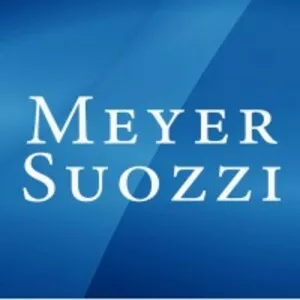In February, I wrote regarding the National Labor Relations Board's (NLRB) recent decision in McLaren McComb on this blog. That decision held that an employer violated Section 8(a)(1) of the National Labor Relations Act by proffering severance agreements containing overly broad non-disparagement and confidentiality clauses. That decision has caused quite a bit of consternation on the part of employers (and their lawyers) as non-disparagement and confidentiality clauses have, since time in memoriam, in almost every employee severance agreement. Late last month the NLRB's General Counsel (GC) issued memorandum GC 23-05 which sought to clarify some of the questions raised.
The GC made it clear that severance agreements are not banned and the finding of an objectionable provision will not render the entire agreement void, but we should take the NLRB at its word that it is firmly on the path of gutting non-disparagement and confidentiality clauses from severance agreements. Moreover, for all those who state, and somewhat correctly, that the NLRB does not necessarily focus on private employers without unions, the fact that the National Labor Relations Act (NLRA) does apply to all employers and the fact that the NLRB has spoken and has stated firmly that the NLRA is violated by such provisions, means it is only a matter of time before courts start rendering decisions consistent with that train of thought.
For the time being, the McClaren McComb decision applies to severance agreements offered to employees who have been separated from their employment and does not necessarily address such things as settlement of litigation. However, it can be safe to say that the vast majority of severance agreements are not involved in litigation, but rather, accommodate the needs of the employer and the employee when downsizing is appropriate.
Still, questions remain. For example, the NLRB's "narrowly tailored" severance provisions will be found lawful but neither the decision nor a recent general counsel memo seeking to clarify the issue addresses what one would consider "narrowly tailored." Further, retroactivity of the NLRB's McClaren McComb decision is still a question. The recent GC memo interprets the decision to apply retroactively while reversing two prior decisions which employers have relied on for quite some time. Therefore, would a court agree to an expansive period of retroactivity? This leaves employers guessing as to what they can do to enforce provisions in the prior settlement agreements before the McClaren McComb decision and the general counsel's memo.
The remaining question is what penalties apply to an employer where it is found that the employer utilized unlawful provisions in its severance agreement. Obviously, the removal of those provisions, generally bargained for knowingly and intelligently by both sides, would be a problem in and of itself. However, will there be other penalties and/or damages that can flow from the use of what has now been deemed to be unlawful language.
All this remains to be seen but much thought must go into how an employer can reasonably achieve its desire to have each side walk away -- not to further disparage the other in the future -- and have some semblance of confidentiality. The assumption that the employers have so much of an upper hand as to warrant governmental intrusion into the contracting practices of two capable parties makes further intervention almost guaranteed.
The content of this article is intended to provide a general guide to the subject matter. Specialist advice should be sought about your specific circumstances.

